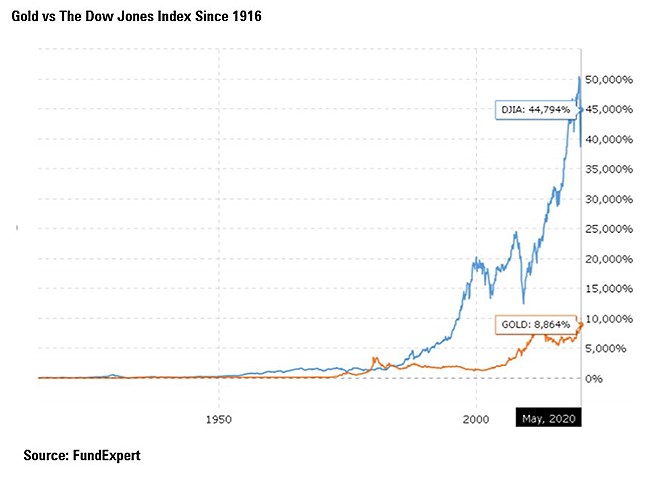Gold has hit a record high and investors have poured billions into gold tracker funds. But should you invest? Probably not.
It’s little surprise that gold is attracting a lot of investor attention. The price of the lustrous yellow metal recently hit a record high and it's never been cheaper to invest in the asset. This isn’t the first time that investors have found themselves drawn to something shiny, however. With a reputation as a safe haven at times of uncertainty, gold tends to rise at times when other assets are falling.
Mike Coop, portfolio specialist at Morningstar Investment Management, says: “People have a deep rooted, emotional response to gold. You can see that in how we refer to it in everyday language: good as gold, gold-plated, gold-class. We think of gold as safe, secure and as being the best and that impacts how people view it in investment terms too.”
Yet despite its allure and popularity, some experts say that holding gold is not a sensible investment move - particularly after its recent climb. Here are just some of the reasons not to invest in gold.

Gold is not a safe haven
A safe haven is an asset which holds its value – or increases in value – even in times of uncertainty. Does gold meet that definition? Probably not. Because, while gold sometimes (but not always) rallies during downturns, it tends to lose those gains during better times. Brian Dennehy, managing director of FundExpert, points out: “Between 1980 and 1982, the price of gold fell 52 per cent. Between 2011 and 2015, it fell 42 per cent. This is not how a safe haven behaves.” Some might say, instead, that a safe haven protects your money from the erosive effects of inflation. But Dennehy says this has also not played out with gold; he calculates that taking inflation into account the gold price tumbled 83 per cent between 1980 and 2001. And if protection from inflation is a main reason to choose gold, then now is clearly not the time to invest – currently, deflation is a bigger risk than rampant inflation.Gold is driven by speculation
The stock market is, the old saying goes, in the short-term a voting machine and over the long-term, a weighing machine. So, although share prices may fluctuate for various reasons – panic, euphoria, fashion – for a short period, in the end it is fundamentals that win out. Over the long-term, the success of a business will be determined by fundamental factors such as profits, return on invested capital, and how it treats shareholders. The same cannot be said of gold. Because gold doesn’t pay dividends or make a profit or loss, its price is only determined by investor sentiment. If it is in demand, the price goes up, if it is out of favour, the price falls. Coop says: “That means you’re simply relying on other people to be prepared to pay a higher price for an asset than you did.” While it may be possible to guess which way that trend will go in the short-term, this is speculating not investing. A glance at the performance of the US stock market against gold since 1916 suggests that investing based on fundamentals tends to reap greater rewards.




